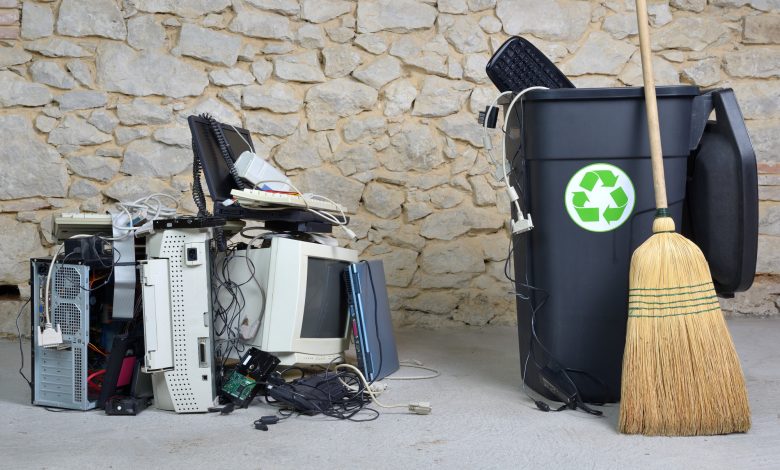Electronic Waste And Why It’s A Problem

Did you know that there are 151 million mobile phones thrown away every year? These are only smartphones and do not include other hazardous electronic waste.
Electronic waste is hazardous to humans, wildlife, and the environment. This waste is polluting landfills, causing a huge amount of greenhouse gasses, and many harmful chemicals are seeping into the soil and water.
It is a fast-growing problem worldwide. If you already have a cell phone, a TV, a computer, or anything else with a plug, this article is for you. Read on to learn more about the issue and how we can prevent it from worsening.
What is Electronic Waste?
Electronic waste, also known as e-waste, is a term used to describe electronic products that have reached the end of their life. E-waste can include computers, televisions, VCRs, phones, fax machines, and more. Even small electronic items like batteries and cell phone chargers can be considered e-waste.
Problem With E-Waste
While there are many benefits to using electronic products, there are also significant environmental concerns associated with their disposal. Because most e-waste contains a variety of metals and other harmful materials, it can be very difficult to safely dispose of it.
When e-waste is disposed of in landfills, the metals and other materials can leach into the ground and water. It poses a serious threat to human health and the environment.
In addition, because e-waste contains valuable metals and other materials, it has become a target for thieves and scavengers. In many developing countries, e-waste is often burned in the open air to recover the metals. This releases harmful toxins into the air and poses a serious health risk to those who live nearby.
Toxic Chemicals
The toxicity of e-waste is a major concern. E-waste contains a range of toxic chemicals. This includes lead, mercury, cadmium, and brominated flame retardants.
These chemicals can cause a range of health problems. This includes neurological damage, developmental problems, and cancer.
Importance of Recycling Electronic Waste
The recycling of electronic waste is important for many reasons. The most obvious reason is to prevent these materials from ending up in landfills. It can provide valuable resources that can be used to create new products.
It also helps to conserve energy and resources. Manufacturing new products require a significant amount of energy and resources. Recycling electronic waste can help reduce the demand for these resources.
With the ever-growing demand for new electronic devices, the need to properly recycle e-waste has become more important than ever. A waste shredding machine is an essential piece of equipment for any facility that generates a large amount of e-waste. By shredding e-waste into small pieces, it becomes much easier to sort and recycle the materials.
Understanding the Electronic Waste Crisis
It’s important to be aware of the implications of electronic waste and to do our part to recycle and properly dispose of it. E-waste is a growing problem because it contains toxic materials that can leach into our soil and water. This can cause health problems for people and animals.
We need to do something about e-waste. We can start by recycling our old electronics, and by buying products that are designed to be recycled. Let’s work together to reduce our electronic waste footprint.
Need more information about taking care of the environment? Check out our blog for more insight.
